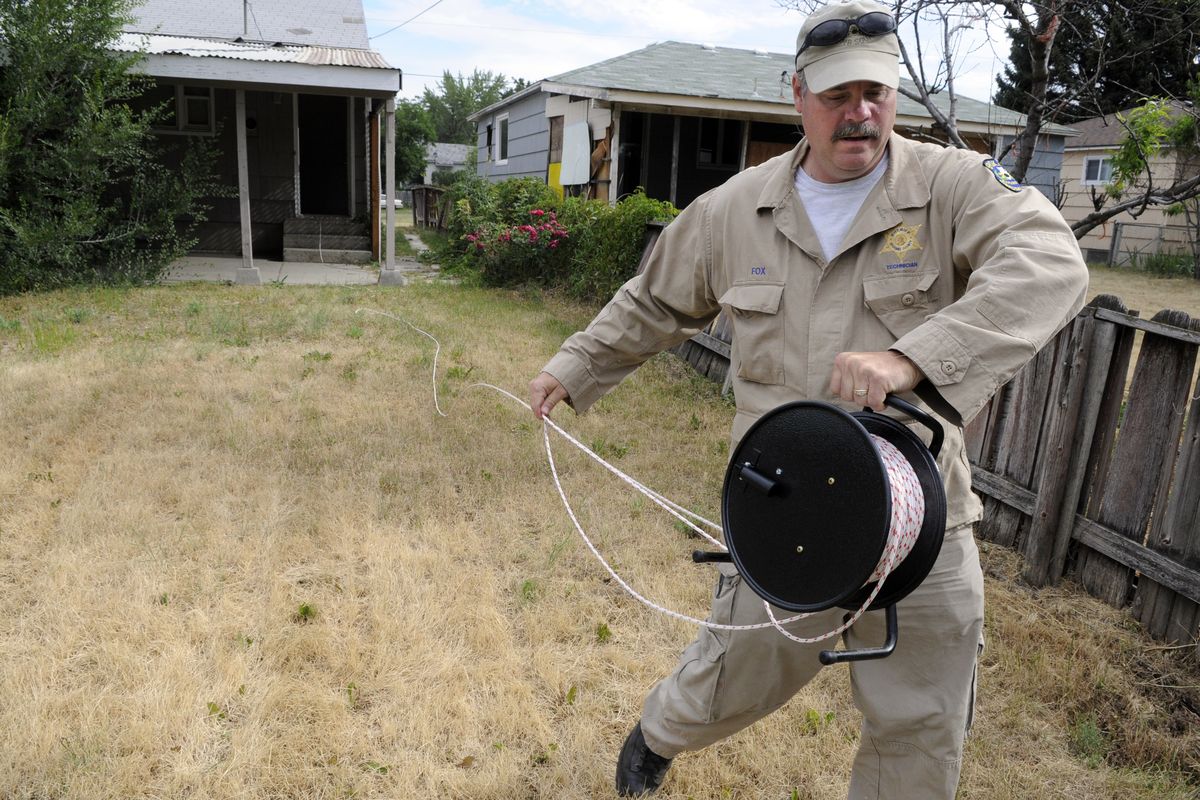Agencies work together to staff bomb unit

Multiple bomb scares and an alleged pipe-bomb murder attempt have kept the Spokane Explosive Disposal Unit busy in recent weeks. But the number of incidents isn’t unusual for the bomb squad.
The unit is a collaborative effort between city, county and federal police agencies. Since 2006, the squad responded to an average of 90 calls per year, said Spokane Police Department Lt. Brad Arleth, squad commander.
Bomb squad members responded to a Coeur d’Alene home to remove 30 aging explosive devices on July 12, to an Airway Heights trailer after a new resident discovered capped PVC pipes under the front porch on July 9, and to a Coeur d’Alene auto shop on June 15 after employees found a pipe bomb underneath an SUV driven by Cindy Steele. Steele’s husband, Edgar Steele, was already in custody on a murder-for-hire charge. Only the Airway Heights case turned out to be a false alarm.
One reason for the squad’s high response number is because the team covers a sprawling territory including much of Eastern Washington and North Idaho. The area’s history of logging, agriculture and mining also plays a role.
In the late 1800s and early 1900s, those industries used a lot of explosives in the Spokane area, said Sgt. Dave Reagan, Spokane County Sheriff’s Office spokesman.
Crews also are frequently called in for old combat explosives, such as hand grenades, discovered after the deaths of Korean War and World War II veterans.
As families clean out old homes and barns, they sometimes find black powder or old dynamite, Reagan said. When military explosives are discovered, the squad works with technicians from Fairchild Air Force Base.
Although city and county technicians usually cover their own jurisdiction, they practice and train as one squad, Reagan said.
“Typically the city covers the city and the county covers the county, but if there’s a call it depends on who is available,” Reagan said.
Another reason for the collaborative effort? The combined unit saves public dollars because separate squads would need twice the equipment, Arleth said.
The Bureau of Alcohol, Tobacco, Firearms and Explosives provides equipment such as containment vehicles, and X-ray and robotic devices, Reagan said.
Officers involved in the bomb squad do the work in addition to their regular duties.
All technicians are trained by the FBI for four months, beginning in Alabama and moving to different locations depending on specialty trainings. Technicians recertify every three years.
“To work with a unit that is well-trained and trustworthy makes for an excellent work environment,” said Spokane County Sheriff’s Sgt. Mike Kittilstved, a supervisory technician.
At incidents the squad uses what Kittilstved calls “render safe procedures” to “minimize impact on the community and keep our guys safe.”
The squad has a flawless track record of safety, he said.
Between city and county officers and FBI agents, there are 12 technicians on the squad, according to the Spokane Police Department. The squad was started in Spokane in 1970 by a returning army veteran, Paul Warrington, who mapped out operating procedures.
In 1972 Spokane sent its first delegates, a sergeant and an officer, to Alabama for federal training, according to SPD.